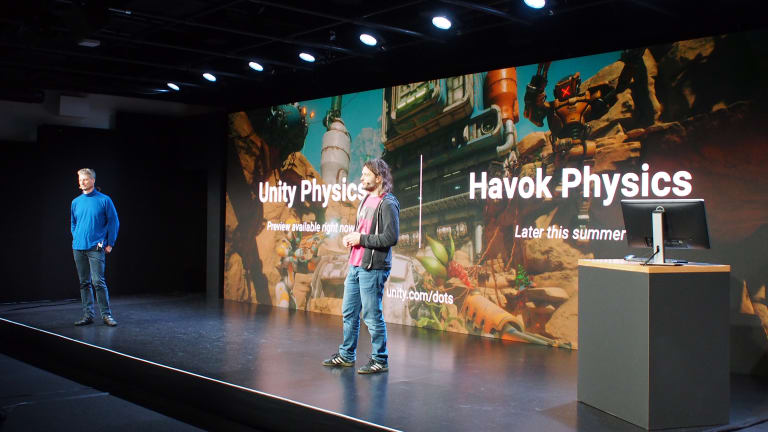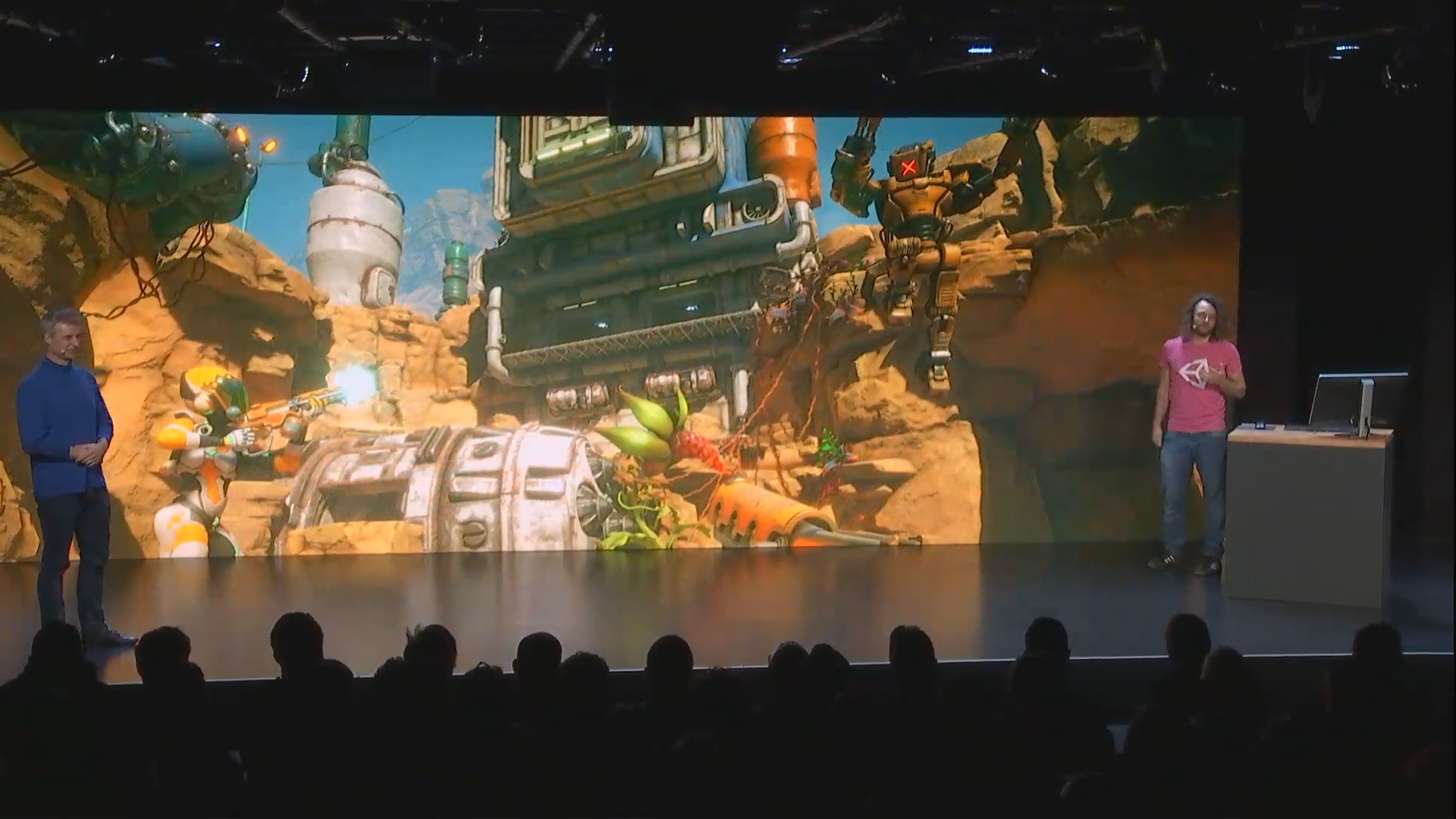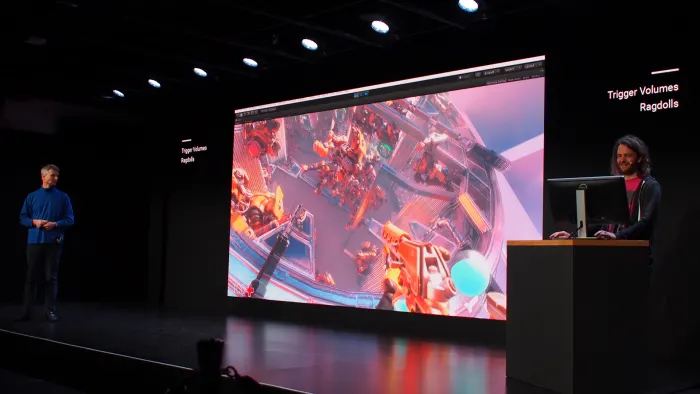Unity and Havok work on a new physics engine
At GDC, Unity today announced a collaboration with Microsoft's Havok on two physics engines. The first is Unity Physics, which will be defaulted, fully written in high-performance C # code. The second is Havok Physics, fully integrated into Unity.

Havok's Oliver Strunk came onstage and said, “We are very excited and want to show how Unity and Havok can work together to take physics to the next level .” The companies have been working together over the past months, but the results are already impressive.

Joachim Ante, co-founder and CTO at Unity, talks about the new physics: “We want to return control of the physics simulation to the hands of developers. The solution should be fast, clear and easily modifiable ... It is fully written in C # using the burst compiler, especially to improve performance. "
Strunk said that Havok, like Unity, went its way “from an object-oriented model to a data-oriented one, giving users more control. This experience allows us to work with Unity on a new data format in C # that describes physics in a simple and understandable way. ” He added that he was impressed with the performance of Unity's C # code and burst compiler.
Ante added: “In our experience, physics very often puts sticks in the wheels of online games, so we worked with the Havok team to create physics specifically for online games.”
The company quickly assured that developers using Unity would be able to convert the project using one of the new physical systems or continue to work on their game without updating.
“This will not affect developers who are in the process of creating their games with existing physical solutions, since the new solutions are designed for projects based on DOTS ,” wrote Andrew Bowell, vice president of Unity, Gamasutra by e-mail .
“If developers want to transfer their projects to the DOTS framework, we have converters for migrating existing physics. If you are creating a new project at DOTS, you will be given the choice of new Unity Physics and Havok Physics. "
"The new Unity Physics will be stateless, there is no longer any need to rely on caching, we can use the DOTS efficiency to give developers a much simpler physics engine that can be easily improved and changed," Bowell writes.

The default engine will be open source, while the opportunity to use Havok will have to be paid. So far, however, it is not clear what amount we are talking about.
Unity Physics can be delivered using the Unity Package Manager , but to feel Havok Physics, you have to wait for the end of summer.

Havok's Oliver Strunk came onstage and said, “We are very excited and want to show how Unity and Havok can work together to take physics to the next level .” The companies have been working together over the past months, but the results are already impressive.

Take physics to the next level
Joachim Ante, co-founder and CTO at Unity, talks about the new physics: “We want to return control of the physics simulation to the hands of developers. The solution should be fast, clear and easily modifiable ... It is fully written in C # using the burst compiler, especially to improve performance. "
Strunk said that Havok, like Unity, went its way “from an object-oriented model to a data-oriented one, giving users more control. This experience allows us to work with Unity on a new data format in C # that describes physics in a simple and understandable way. ” He added that he was impressed with the performance of Unity's C # code and burst compiler.
Ante added: “In our experience, physics very often puts sticks in the wheels of online games, so we worked with the Havok team to create physics specifically for online games.”
No need to run updated
The company quickly assured that developers using Unity would be able to convert the project using one of the new physical systems or continue to work on their game without updating.
“This will not affect developers who are in the process of creating their games with existing physical solutions, since the new solutions are designed for projects based on DOTS ,” wrote Andrew Bowell, vice president of Unity, Gamasutra by e-mail .
“If developers want to transfer their projects to the DOTS framework, we have converters for migrating existing physics. If you are creating a new project at DOTS, you will be given the choice of new Unity Physics and Havok Physics. "
"The new Unity Physics will be stateless, there is no longer any need to rely on caching, we can use the DOTS efficiency to give developers a much simpler physics engine that can be easily improved and changed," Bowell writes.

The default engine will be open source, while the opportunity to use Havok will have to be paid. So far, however, it is not clear what amount we are talking about.
Unity Physics can be delivered using the Unity Package Manager , but to feel Havok Physics, you have to wait for the end of summer.
